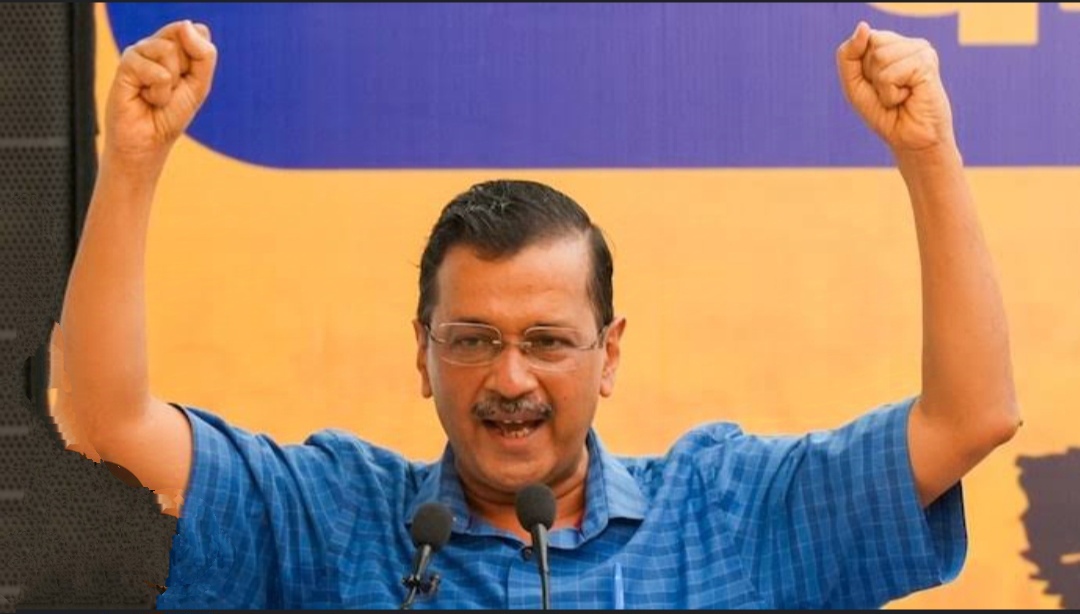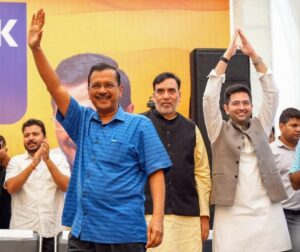Arvind Kejriwal’s Resignation: A Political Shift on PM Modi’s Birthday
On September 17, 2024, Arvind Kejriwal, the Chief Minister of Delhi and leader of the Aam Aadmi Party (AAP), made a surprising announcement that he will resign from his position. This decision, which coincides with Prime Minister Narendra Modi’s 74th birthday, has sent ripples through the political landscape of India. To understand the full implications of Kejriwal’s resignation, it is essential to delve into the context of his tenure, the reasons behind his decision, and the potential ramifications for Delhi and Indian politics at large.

Arvind Kejriwal: A Brief Overview
Arvind Kejriwal, an IITian and former civil servant, entered the political arena in 2012 with the formation of the Aam Aadmi Party (AAP). His rise was meteoric; within a year, he led his party to a historic victory in the Delhi Assembly elections of December 2013. His tenure has been marked by his emphasis on anti-corruption measures, the promotion of transparency, and significant reforms in education and healthcare sectors in Delhi.
Kejriwal’s tenure as Chief Minister has been characterized by his unorthodox approach to governance and his contentious relationship with the central government. Despite his efforts to reform Delhi’s infrastructure and public services, he has frequently clashed with the Bharatiya Janata Party (BJP)-led central government, which has often been accused of obstructing his initiatives.
The Timing and Context of the Resignation
The announcement of Kejriwal’s resignation on September 17 is intriguing for several reasons. Firstly, this date coincides with Prime Minister Narendra Modi’s birthday, which adds a layer of symbolic significance to the resignation. In the realm of Indian politics, timing is crucial, and choosing this date might be perceived as a strategic move, potentially to maximize media coverage and public attention.
The resignation announcement could be seen as a direct challenge to Modi, marking a dramatic shift in Delhi’s political dynamics. It is also worth noting that Kejriwal’s resignation comes amid a backdrop of political turbulence in Delhi, including recent controversies surrounding local governance and allegations of corruption and mismanagement within the AAP.
Possible Reasons Behind the Resignation
Understanding why Kejriwal chose to resign involves examining several potential factors:
- Political Strategy and Pressure: Kejriwal’s resignation could be a strategic move aimed at leveraging the political spotlight and creating a significant impact on the national stage. By resigning on Modi’s birthday, Kejriwal might be attempting to overshadow Modi’s celebrations and place himself at the center of national discourse. This timing could also be a strategic maneuver to test the waters for potential future political opportunities or negotiations.
- Internal Party Dynamics: Within the AAP, there have been signs of internal strife and factionalism. Kejriwal’s resignation could be a response to mounting pressure from within the party or an attempt to reassert control. If internal conflicts or leadership challenges have been brewing, stepping down could be seen as a way to address these issues from a different vantage point.
- Governance Challenges: Kejriwal’s tenure has not been without its share of controversies. Issues such as inadequate public infrastructure, challenges in implementing key reforms, and persistent confrontations with the central government may have contributed to a sense of frustration or disillusionment. Resigning might be a way for Kejriwal to distance himself from these challenges or to prompt a reassessment of his governance approach.
- Health and Personal Reasons: It is also possible that personal or health-related reasons could be influencing Kejriwal’s decision. Political leaders often face immense pressure and stress, which can take a toll on their personal well-being. If Kejriwal has been dealing with health issues or other personal matters, resigning might be a necessary step for him to focus on his health and family.

Conclusion
Arvind Kejriwal’s announcement to resign as Delhi Chief Minister on September 17, 2024, is a notable development in Indian politics. The timing, coinciding with Prime Minister Narendra Modi’s birthday, adds an element of symbolic significance to the resignation. The reasons behind Kejriwal’s decision are multifaceted, ranging from strategic considerations to personal and governance-related factors.
The immediate and long-term implications of this resignation will be felt across Delhi and the broader Indian political landscape. The transition period will be crucial for Delhi’s political stability and for the future trajectory of the AAP. On a national level, this move could alter political dynamics and influence upcoming electoral strategies.
As the political community and the public grapple with the implications of Kejriwal’s resignation, the coming weeks will likely provide further insights into the reasons behind his decision and the impact on Indian politics


Nice blog! Is your theme custom made or did you download it from somewhere?
A design like yours with a few simple tweeks would really make my blog shine.
Please let me know where you got your design. Thanks a
lot!